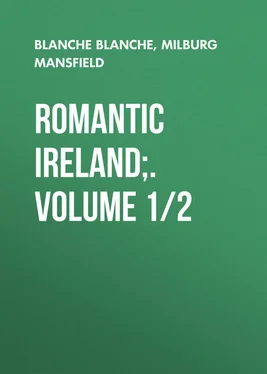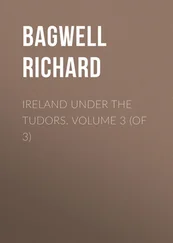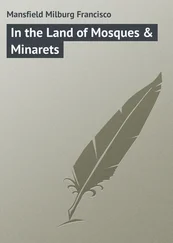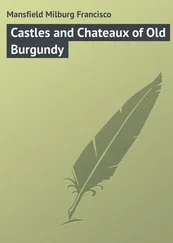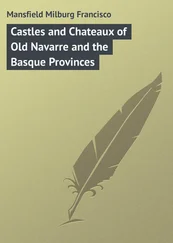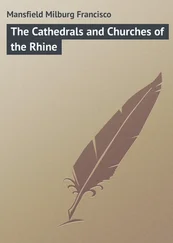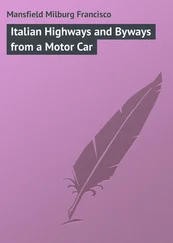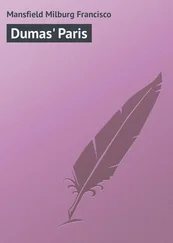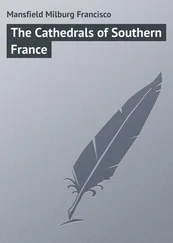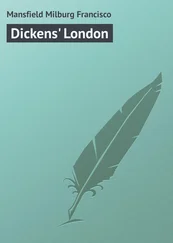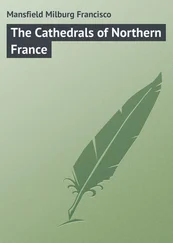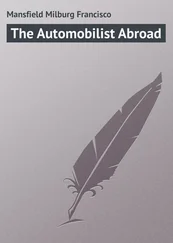Milburg Mansfield - Romantic Ireland;. Volume 1/2
Здесь есть возможность читать онлайн «Milburg Mansfield - Romantic Ireland;. Volume 1/2» — ознакомительный отрывок электронной книги совершенно бесплатно, а после прочтения отрывка купить полную версию. В некоторых случаях можно слушать аудио, скачать через торрент в формате fb2 и присутствует краткое содержание. Жанр: foreign_language, foreign_prose, Путешествия и география, на английском языке. Описание произведения, (предисловие) а так же отзывы посетителей доступны на портале библиотеки ЛибКат.
- Название:Romantic Ireland;. Volume 1/2
- Автор:
- Жанр:
- Год:неизвестен
- ISBN:нет данных
- Рейтинг книги:3 / 5. Голосов: 1
-
Избранное:Добавить в избранное
- Отзывы:
-
Ваша оценка:
- 60
- 1
- 2
- 3
- 4
- 5
Romantic Ireland;. Volume 1/2: краткое содержание, описание и аннотация
Предлагаем к чтению аннотацию, описание, краткое содержание или предисловие (зависит от того, что написал сам автор книги «Romantic Ireland;. Volume 1/2»). Если вы не нашли необходимую информацию о книге — напишите в комментариях, мы постараемся отыскать её.
Romantic Ireland;. Volume 1/2 — читать онлайн ознакомительный отрывок
Ниже представлен текст книги, разбитый по страницам. Система сохранения места последней прочитанной страницы, позволяет с удобством читать онлайн бесплатно книгу «Romantic Ireland;. Volume 1/2», без необходимости каждый раз заново искать на чём Вы остановились. Поставьте закладку, и сможете в любой момент перейти на страницу, на которой закончили чтение.
Интервал:
Закладка:
The project did not receive immediate favour, as might be presumed, and was the real cause of the impetus given to migration to the United States, “the home of the free.”
The streams of fugitives swelled to dimensions that startled Christendom; but the English press burst into a pæan of joy and triumph – for now at last the Irish question would be settled! Now at last England would be at ease. Now at last this turbulent, disaffected, untamable race would be cleared out. “In a short time,” said the London Times , “a Catholic Celt will be as rare in Ireland as a red Indian on the shores of Manhattan.”
The press, indeed, in England, was most uncharitable, and, assuredly, in more instances than one, quite ignorant of that about which they were writing.
Religion was, of course, their chief point of attack. It is always a safe card to play, if one wants notoriety merely, not only for as impersonal a thing as a public journal, but for an individual as well.
The Irishmen who remained, the emigrants’ kindred, their own flesh and blood, their pastors and prelates, could not witness unmoved this spectacle, unexampled in history; the flight en masse of a population – as it then seemed, and the figures are truly astonishing – from their own beautiful land, not as adventurers, but as heart-crushed victims of expulsion. Some voices, accordingly, were raised to deplore this calamity; to appeal to England; to warn her that evil would come of it in the future. But England did not see this; at least, did not see it then . There were philosopher-statesmen ready at hand to argue that the flying thousands were “ surplus population .” This was the cold-blooded official way of expressing it; but the English press, however, went farther. They called the sorrowing cavalcade, wending its way to the emigrant ship, a race of assassins, creatures of superstition, lazy, ignorant, and brutified. The London Saturday Review made the following reply to a very natural expression of sympathy and grief wrung from an Irish prelate witnessing the departure of his people:
“The Lion of St. Jarlath’s surveys with an envious eye the Irish exodus, and sighs over the departing demons of assassination and murder. So complete is the rush of departing marauders, whose lives were profitably occupied in shooting Protestants from behind a hedge, that silence reigns over the vast solitude of Ireland.”
Volumes might be filled with the same sort of comment, and yet other volumes with an impartial review of events as they really were; but even then the story would not be told, and hence the impossibility of entering into the controversial aspect of the question here.
Tears may trickle down the cheeks, and hearts may palpitate with emotion, when the sons and daughters of the soil view for the last time the streams which sparkle in the glens, the lakes which bosom themselves in the mountains, and the bowers of fairyland with which every Irish wood is endowed; but, yet, one may depend upon it that as bright or a brighter future awaits the emigrant who goes out into the world than remains for him who stays at home.
It seems paradoxical to see in emigration at once the hope and the curse of Ireland; but, after all, perhaps it is not wholly a detriment. The area of Ireland is comparatively small, its productiveness limited, and its population still relatively great, in spite of the fact that some five millions have emigrated to America alone since 1840.
Manifestly it has been for years, and must be for some years yet, mainly emigration to which Ireland must look for improvement of the social conditions of those who are left behind – provided, of course, that home conditions are sufficiently encouraging to the tillers of the fields, the cattle-growers, the men and women in the great flax and linen factories, the ship-building establishments, and the fisheries. These industries alone, with the increasing trade outside their own country for the native products, ought in a measure to win increased prosperity.
In addition, too, it is fondly hoped by many, and predicted by a few, that a great tide of tourist travel will turn toward Ireland, and that, in time, it will become as busy catering to the wants of pleasure-loving tourists as are Switzerland and Norway.
Perhaps this is not altogether to be desired, from many points of view, but it appears inevitable.
The political aspect of affairs in Ireland is ever and ever improved by the periodic and frequent visits of royalty. These ought to do much good, for the idea should be fostered that the people of Ireland have the same king as Britain across the Channel. Some there be, in both islands, who would have this forgotten, and many happy ideas for the encouragement of Irish affairs have been strangled by hands both from within and without the green isle.
Forgetfulness may account for this, but more probably it does not, and many entirely ignore the fact that Great Britain’s king has also the words “and Ireland” attached to his title. At the end of a recent visit of King Edward, the London papers, almost without exception, referred to his return as a “home-coming,” as if he had returned from an alien shore.
The fact was passed unnoticed, apparently, but there was a sting in it which the Irish themselves, one may be sure, did not overlook.
The Irish land and tenant problem is one which cannot be ignored, and has given great concern to those responsible for Ireland’s welfare.
It is impossible, and it would not be meet, to attempt to deal, even superficially, with the question here; but it cannot be overlooked by one who knows anything of Ireland and the present-day aspect and conditions of life there; nor can it by even the “butterfly” tourist, who does the round of Killarney’s fair lakes in a personally conducted party. Even he, if he is at all observant, will see evidences of certain conditions of life with which he has not become acquainted elsewhere.
The question for the landlords – leaving the rights and wrongs out of it – was, and is, how rentals can be collected.
It certainly cannot always be expected to be paid out of the land. The eight or nine acres of reclaimed bog-land, which often constitute the tenants’ holding, can produce nothing in the nature of rent after the occupants have secured any sort of subsistence. But that is only half the case. There is, or is supposed to be, another very large class of holdings in the poorest districts, which cannot even produce a bare subsistence for an average family. It is possible that the demerits of bog-land are greatly exaggerated. When reclaimed it is, it is said, in a sense, easy to till and productive. But, on the other hand, it rapidly impoverishes itself and deteriorates by periodical flooding, – the curse of all the west, – and its productivity is but comparative.
On the De Freyne estate at Castlerea there are hundreds of acres of rich grassland with scarcely a house upon them, “cleared” years ago by the landlord when prices were high and there was a chance of profitable sales, – which sales, however, apparently did not materialize. On the other hand, there are hundreds of acres of bog-land, with the little cabins crowding close upon one another as far as the eye can see, which certainly indicates that there is a demand for this class of holding. Rents are not high, as rents go elsewhere; but they cannot be paid out of the land, and the sons and the daughters, in order to live, must leave it. In cottage after cottage one may hear the same story. An old man and his wife with one daughter left at home; two sons in England; two daughters in America, – all sending over a pound now and then to keep the roof over their parents’ heads. And these people cleared the land themselves. “It was all red bog, sorr, like yon,” they tell you.
Читать дальшеИнтервал:
Закладка:
Похожие книги на «Romantic Ireland;. Volume 1/2»
Представляем Вашему вниманию похожие книги на «Romantic Ireland;. Volume 1/2» списком для выбора. Мы отобрали схожую по названию и смыслу литературу в надежде предоставить читателям больше вариантов отыскать новые, интересные, ещё непрочитанные произведения.
Обсуждение, отзывы о книге «Romantic Ireland;. Volume 1/2» и просто собственные мнения читателей. Оставьте ваши комментарии, напишите, что Вы думаете о произведении, его смысле или главных героях. Укажите что конкретно понравилось, а что нет, и почему Вы так считаете.
